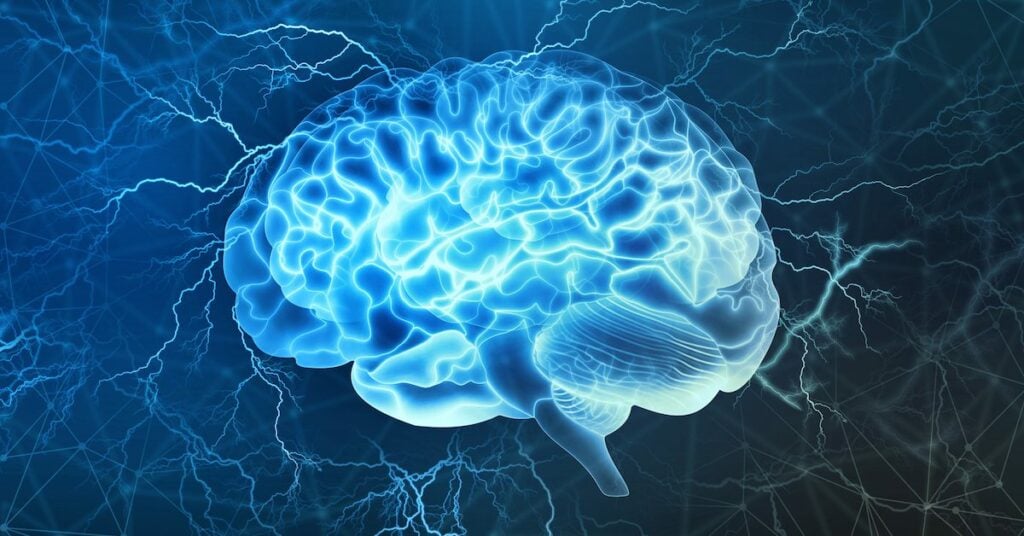Obsessive-compulsive disorder (OCD): Symptoms and treatments
Reviewed by therapist.com team

What Is OCD?
Obsessive-compulsive disorder (OCD) is a mental health disorder characterized by recurring, unwanted thoughts (obsessions) that trigger the urge to engage in repetitive, ritualistic behaviors (compulsions). OCD follows a four-step cycle:


- Obsession
- Mental distress
- Compulsion
- Temporary relief
What Is an Obsession?
The cycle of OCD starts with an obsession. Obsessions are unwanted thoughts, images, ideas, or impulses that enter a person’s mind without their consent or control.
These repetitive thoughts cause severe mental distress and are often accompanied by feelings of fear, disgust, or anxiety. They cannot be wished away, reasoned with, or ignored. Common obsessions include:
-
- Cleanliness
- Order (symmetry/perfection)
- Words or numbers
- Perfection
- Religion
- Losing control
- Harming yourself or others
- Sexual violence
People with OCD usually know that their obsessions are not logical and wish they would stop having them. Obsessions are unwanted, unwelcome thoughts that often feel like an intrusion into a person’s psyche.
What Is a Compulsion?
Compulsive behavior starts as a way of relieving the distressing emotions caused by unwanted obsessions. A compulsion may be directly related to the obsession (e.g., excessive handwashing due to a fear of contamination), or it may be expressed through an unrelated behavior. Common compulsions include:
-
- Counting to a specific number
- Excessive cleaning
- Putting objects in a specific order
- Checking locks or appliances
- Repeating a specific word or phrase
- Hoarding
Keep in mind that compulsions may offer temporary relief, but they are not a long-term solution. Instead, compulsions usually strengthen obsessions by reinforcing the (illogical) idea that performing the compulsion is the only way to find relief from the obsession, resulting in more frequent and more intense cycles of OCD.
Five Types of OCD
Not everyone with OCD has the same obsessions, compulsions, or experiences. In general, however, most forms of OCD fall into one of five categories:
- Checking (Doubt): Checking can manifest in a number of ways. You may have to check that the stove is turned off before you leave the house, or you may feel the urge to call your parents and make sure they’re still healthy. You may be obsessed with your own health, constantly checking for signs of disease or illness.
- Contamination: There are many forms of OCD that revolve around the idea of contamination. You may excessively clean your house or even yourself through handwashing, extra showers, and other hygiene rituals. You may obsess over the possibility of food poisoning or contracting some sort of fatal foodborne disease.
- Order (Symmetry/Perfection): If your OCD centers on order, you need everything just so. This may result in an excessively organized or clean environment, or it may manifest in doing something a certain number of times. You may be obsessed with doing everything “just right.”
- Rumination: People who experience ruminative thinking dwell on unanswerable questions regarding philosophy, metaphysics, or religion that have not been definitively proven, such the issue of whether there is life after death or the meaning of morality. This type of ruminative thinking is undirected and unproductive, as the person may spend hours going over arguments in their head while invariably nevering reaching a satisfactory conclusion.
- Intrusive Thoughts: Unlike rumination, intrusive thoughts involve unwelcome, disturbing, and even horrific thought patterns that result in fear, disgust, or panic. These thoughts may involve the obsessive fear of carrying out violence against others, committing unwanted sexual acts, violating certain religious beliefs, or engaging in some other form of taboo behavior.
Signs and Symptoms of OCD
Symptoms of OCD differ depending on the type of obsessive-compulsive disorder you have. However, some symptoms may apply to more than one type of OCD. For example, excessively cleaning your home could be due to an obsession with contamination or order.
Common symptoms that apply to one or more types of OCD include:
-
- Ritualistic counting or checking
- Excessive cleaning of the environment, objects, or yourself
- Repeating certain words, numbers, or phrases
- Worry, anxiety, or paranoia
- Unwanted thoughts that seem to spiral out of control
- Inability to break from routine without experiencing deep distress
- Feeling like you have to perform certain behaviors in order to get on with your day
What Warrants an OCD Diagnosis?
Have you ever heard someone say, “I clean all the time—I’m so OCD”? The term “OCD” has unfortunately entered the general vocabulary of our culture. It’s often used to describe thoughts and behaviors that do not match a true medical diagnosis of a mental health disorder.
There’s a big difference between a person who prefers a clean house and a person who suffers from OCD. Generally speaking, getting diagnosed with OCD means you meet the following criteria:
-
- You experience unwanted or troubling thoughts that you attempt to get rid of by engaging in some kind of ritual.
- You cannot control or stop your obsessions or compulsions.
- You spend an excessive amount of time performing compulsions, even though they bring you no pleasure.
- Your symptoms regularly interfere with your ability to function at home, at work, at school, or in relationships.
Keep in mind that no article, quiz, or opinion of a friend or family member can actually diagnose you with OCD. Only a trained mental health professional can offer a true diagnosis. If you think you may have OCD, click here to find a therapist near you.
What Causes OCD?
-
- Genetics: If someone in your family has been diagnosed with OCD, you are at a greater risk for developing OCD, even if you develop a different obsession and/or compulsion.
- Biochemistry: Chemical imbalances in the brain may increase your likelihood for OCD.
- Learned behavior: You may learn to develop OCD by watching a parent or sibling practice certain behaviors. For example, if your parent expresses their OCD through cleanliness, you may grow up thinking excessive cleaning is normal and expected.
- Personality: Certain personalities may be more likely to develop OCD than others. For example, personalities that are prone to perfectionism may develop obsessions and compulsions regarding “just right” behaviors.
Related Disorders
OCD may also occur alongside of other mental health disorders, such as:
-
- Anxiety
- Depression
- Eating disorders
- Addiction
- Tic disorders
- Trichotillomania (hair-pulling disorder) and excoriation (skin-picking disorder)
Seeking Treatment for OCD
Most successful treatments for OCD are based on psychotherapy, medication, or some combination of both. You can also practice stress management to incorporate healthier habits at home.
Common OCD Treatments
-
- Cognitive behavioral therapy (CBT): CBT is a form of psychotherapy that helps people identify unhelpful or negative thought patterns that affect their emotions and behaviors. Your therapist may use CBT to help you identify your obsession and explore healthier responses to those thoughts other than your compulsion.
- Exposure and Response Prevention (ERP): ERP is a form of CBT that re-enacts the four-step OCD cycle in a safe environment under the supervision of your therapist. It involves purposely exposing yourself to situations that trigger your obsession and then engaging in response prevention to avoid carrying out the associated compulsion. ERP is considered the gold standard in the treatment of OCD.
- Medications (SSRIs): Selective serotonin reuptake inhibitors (SSRIs) are a form of antidepressant commonly used to treat people with OCD.
- Stress management: Stress may trigger OCD behaviors. By practicing stress management (while still receiving professional treatment), you may be able to interrupt the OCD cycle the next time you encounter a stressful situation.
Frequently Asked Questions (FAQs)
“Do I Have OCD?”
The only way to receive an OCD diagnosis is to seek professional help. Click here to find an OCD therapist near you.
Is OCD a Mental Illness?
Yes, OCD is a mental health disorder. This means that people with OCD likely will need professional help in order to overcome their symptoms. The good news is that OCD is treatable. Many people with OCD experience great improvement with therapy, medication, or both.

About the author
The editorial team at therapist.com works with the world’s leading clinical experts to bring you accessible, insightful information about mental health topics and trends.
Related articles

Transcranial magnetic stimulation (TMS): Uses and risks
Transcranial magnetic stimulation (TMS) therapy is an effective, relatively...
